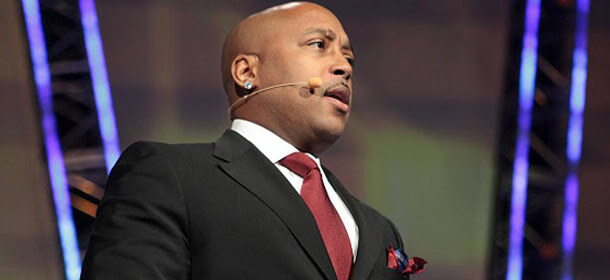How Entrepreneurs Learn to Improve Their Game
Image Credit: Entrepreneur.com
Entrepreneurs who eventually succeed often find value in their flops. “Failure humbles you,” Fubu founder Daymond John shared via a voice message. It “also tests you and makes you sure you are cut out for the responsibilities of being an entrepreneur,” he added, noting failure is “a clear report card on what you did right and what you did wrong.”
Some who may fail are “people who start off with a large amount of money,” said John, who is also an investor on ABC’s Shark Tank. “They believe the money itself is going to create the business, and they don’t have any proof of concept, meaning any actual customers or sales.”
Who does the Shark think are the entrepreneurs destined to succeed? “The ones that have a long history in the business or the market so they’ve made a lot of mistakes or they’ve seen a lot of mistakes and have a network to rely on.”
The entrepreneurs who meet success can be “those that, by grit, have created some type of following,” John added. “They didn’t just throw a bunch of money out there. They sold something. They went back to the customer, resold it, and/or fixed the product and now have a perfect product.”
Pursue a passion. The critical difference, for some entrepreneurs, is passion. “My failed businesses sounded like good ideas at first, but the big difference was that I was always thinking about my successful businesses when I woke up and went to bed,” Tom Corson-Knowles, founder of TCK Publishing in Bloomington, Ind., shared by email.
Focus the enterprise. “I’ve been in business for nearly 20 years, and the key thing I’ve learned is be focused,” wrote Rich Dale, CEO of Belfast-based Flowlens, by email. When he began his web design and development company in Northern Ireland, the staff “tried to be ‘all things, to all people’ and take any client opportunity that came along.”
A new business owner should figure out where the company’s strengths lie and not to succumb to scope creep, according to Dale. “If an opportunity does not fit your strategy,” he wrote, “you can say no without remorse, knowing that it will not slow you down. Being focused has allowed us to accelerate the growth of our business, and as a result reap the rewards.”
Be committed. Some entrepreneurs gain momentum after taking concrete steps like leasing an office. “The minute I got an office space, it was a game changer,” wrote Tena Lynn Pettis, founder of marketing firm Tenacious Edge, based in St. Paul, Minn. “I had to pay for something; I had a lease and there was no turning back. I was in this whole entrepreneur thing for the long haul! Since then I have a handful of employees and we just moved into a larger space this past month.”
Maintain a learning mind-set. A common regret of leaders of failed startups is their loyalty to a product or service that isn’t connecting with users. “I launched my first business at the age of 22 and since then have founded three more,” wrote Violette de Ayala, founder of Femfessionals, a company offering a business-networking service for women that is based in Miami.
Regardless of the type of business, “love what you do,” John advised. “Surround yourself with a team of advisors [who] have the same agenda. Do homework. Research every single thing that you are doing. Take affordable next steps. Take a step forward, learn and then repeat.”
Source: Entrepreneur.com

